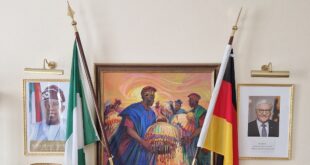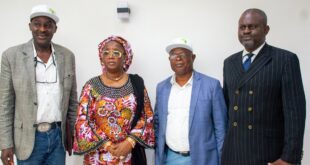GENEVA, Switzerland, 20 March 2017,-/African Media Agency (AMA)/- Rethinking the African ‘business model’ to remain relevant in a changing and competitive environment set the tone for the opening of the fifth edition of the Africa CEO Forum, a Jeune Afrique Group initiative, organized in partnership with the African Development Bank.
In his keynote address, Amir Ben Yahmed, Founder and President of the Forum, spoke about the achievement of the Africa CEO Forum, from humble beginnings in 2012 to becoming “the most significant meeting of the African private sector”.
Speaking on this year’s theme, he explained the urgency to overhaul Africa’s business model because of the declining growth in African economies. “Even more alarming is the fact that the two biggest economies in Africa, Nigeria and South Africa, which are responsible for 32% of the continent’s production, have been very badly affected”.
He also announced the launch of the African CEO Barometer, an initiative aimed at measuring the confidence in African CEOs and the expectations and prospects of key leaders in the African private sector. Published on the occasion of the Africa CEO Forum, the Barometer is based on a survey of more than 1,000 active African CEOs across the continent and will be renewed annually.
Mr Ben Yahmed went on to share some interesting data compiled by the barometer, the first being that 61% of African business leaders believed their activities have been negatively impacted by the global economic downturn in the past few months.
The two main demands respondents had for governments are to improve the business climate (83%) and to fight against fraud and corruption (65%), which they consider more important than building infrastructure (51%).

With regard to global economic downturn, the barometer further identified three groups of emerging countries:
- Countries that were not affected by the economic decline and are optimistic about the future (Senegal, Morocco)
- Countries that were affected but remain optimistic (Nigeria, Cameroon)
- Countries that were not affected but are pessimistic about the future (Côte d’Ivoire, Kenya, DRC)
Also worth noting is that 93% of respondents said they are prepared to commit to ensuring greater representation of women in leadership positions, thus sharing the vision of the Women in Business Initiative launched at last year’s forum and which is geared towards the promotion of the role women play in business.
In a speech read on his behalf (by AfDB Vice President in charge of the private sector, infrastructure and industrialization Pierre Guislain), President Akinwumi Adesina challenged Governments to fully embrace, incentivize and unleash the potential of the private sector in order to boost Africa’s economic growth and lift millions out of poverty. “Like a bird flies with two wings, so must economies: public and private sectors must be in a synchronous balance,” he said.
Preceded by an expert briefing by the Director of the African Department at the International Monetary Fund, Abebe Aemro Selassie, participants witnessed a high-level panel discussion on this year’s theme with engaging remarks from panelists including Saran Kebet-Koulibaly from the International Finance Corporation, Mo Ibrahim of the Eponymous Foundation and Naguib Sawiris of OTMT Investments.
Drawing on their vast knowledge of business growth and experience in helping run successful business structures, the speakers further set out the tools needed to ensure a more consistent, predictable and stable business environment for the private sector which included ensuring good governance and transparency, educating the youth, and supporting agriculture.
Over 1,100 participants from 42 countries, including 40 ministers and two heads of state, are participating in this year’s edition of the Africa CEO Forum, which ends on 21 March.
Launched in 2012, the AFRICA CEO FORUM has established itself as the foremost international event dedicated to the development of the African private sector. In 2016, the AFRICA CEO FORUM hosted nearly 1,000 African and international public figures including 600 CEOs from 43 African countries and 100 high-level speakers.
 THE AFRICAN COURIER. Reporting Africa and its Diaspora! The African Courier is an international magazine published in Germany to report on Africa and the Diaspora African experience. The first issue of the bimonthly magazine appeared on the newsstands on 15 February 1998. The African Courier is a communication forum for European-African political, economic and cultural exchanges, and a voice for Africa in Europe.
THE AFRICAN COURIER. Reporting Africa and its Diaspora! The African Courier is an international magazine published in Germany to report on Africa and the Diaspora African experience. The first issue of the bimonthly magazine appeared on the newsstands on 15 February 1998. The African Courier is a communication forum for European-African political, economic and cultural exchanges, and a voice for Africa in Europe.






















